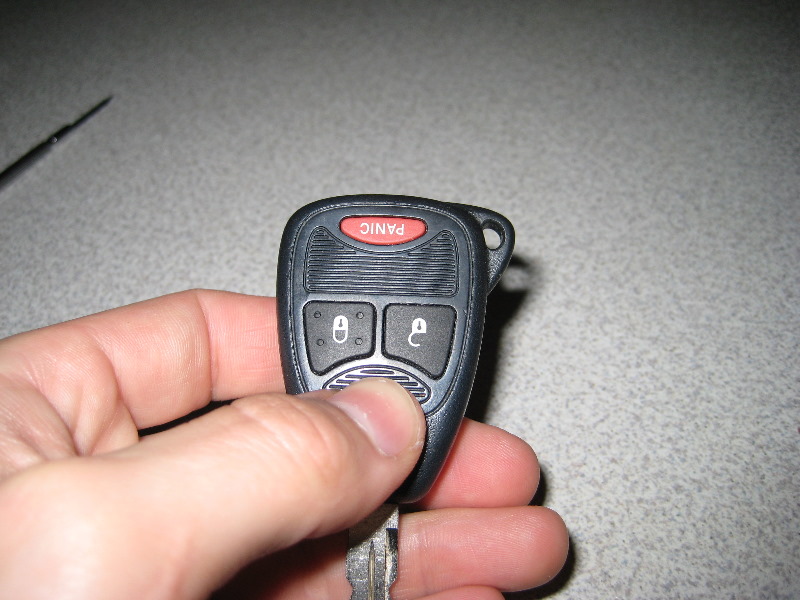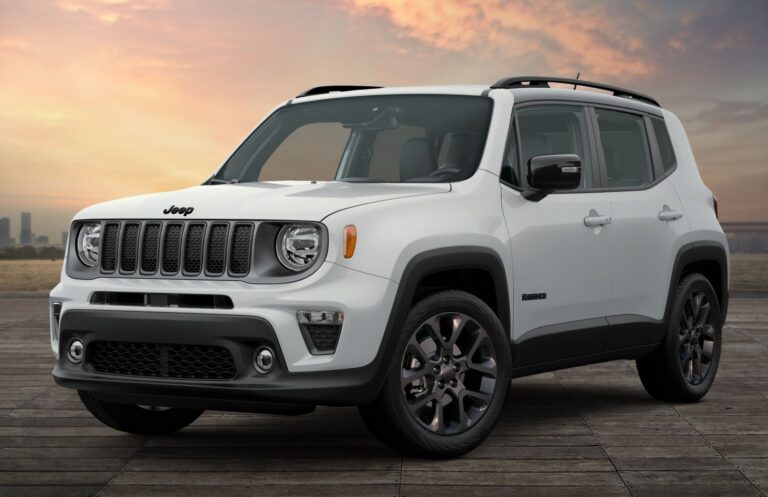Wrangler Jeep Key: Your Indispensable Connection to Adventure
Wrangler Jeep Key: Your Indispensable Connection to Adventure jeeps.truckstrend.com
The iconic Jeep Wrangler, a symbol of freedom, rugged capability, and adventure, is more than just a vehicle; it’s a lifestyle. And at the heart of accessing this lifestyle lies a deceptively simple yet incredibly complex device: the Wrangler Jeep Key. Far from being a mere piece of metal, today’s Wrangler key is a sophisticated piece of technology, an indispensable link between you and your vehicle, embodying layers of security, convenience, and functionality. Understanding your Wrangler key isn’t just about knowing how to start your engine; it’s about appreciating the engineering that protects your investment, simplifies your daily interactions, and ensures your next adventure is always just a turn or a push away. This comprehensive guide will delve into every aspect of the Wrangler Jeep Key, from its historical evolution to its modern technological marvels, offering practical advice, troubleshooting tips, and essential information for every Jeep owner.
Wrangler Jeep Key: Your Indispensable Connection to Adventure
The Evolution of the Wrangler Key: From Simplicity to Sophistication
The journey of the Wrangler Jeep Key mirrors the advancement of automotive technology itself. Early Jeeps, much like other vehicles of their era, relied on simple, mechanical keys. These were cut to specific patterns, operating a purely mechanical ignition and door lock system. While functional, they offered minimal security against theft.
As technology progressed, so did the key. The late 1990s and early 2000s saw the introduction of transponder keys in many vehicles, including the Wrangler. These keys contained a small microchip (transponder) that communicated with the vehicle’s immobilizer system. Without the correct transponder signal, the engine would not start, even if the key blade fit the ignition. This was a significant leap in anti-theft measures.
The 2000s brought further integration with remote head keys, combining the transponder chip and a remote keyless entry (RKE) system into a single unit. This allowed owners to lock/unlock doors and activate panic alarms remotely.
The most recent evolution, particularly prominent in newer Wrangler models (JL generation), is the proximity key or smart key. These fobs allow for keyless entry and push-button start, meaning the key doesn’t even need to leave your pocket. The vehicle senses the key’s presence, allowing you to unlock doors by touch and start the engine with a button press, ushering in an era of unparalleled convenience.
Types of Wrangler Jeep Keys: A Detailed Look
Understanding the specific type of key your Wrangler uses is crucial for replacement, programming, or troubleshooting.
- Traditional Mechanical Key (Pre-1998, limited use): Simple metal key, no electronics. Primarily for older models or as a basic spare for some utility vehicles.
- Transponder Key (Typically 1998-2007 JK models, some earlier TJs): These keys look like standard car keys but contain a hidden RFID chip. When inserted into the ignition, the chip sends a signal to the vehicle’s immobilizer. If the signal is not recognized, the car will not start. They do not have remote lock/unlock buttons.
- Remote Head Key (Common for 2007-2018 JK models, some later TJs): This is a combined unit featuring a traditional key blade and integrated remote buttons for locking, unlocking, and panic. Inside, it still houses a transponder chip for engine starting. These are often referred to as "key fobs with a blade."
- Proximity/Smart Key (2018-Present JL models, Gladiator): These are sleek fobs that typically lack a traditional key blade, although they contain a hidden emergency key. They enable "Keyless Go" or "Push-Button Start," allowing the vehicle to be unlocked and started without inserting the key, simply by being in proximity. They communicate with the vehicle using advanced RFID and rolling code technology.
- Valet Key: Some older systems might have a valet key that starts the engine and opens the driver’s door but not the trunk or glove compartment, offering limited access. Less common with modern Wranglers.
- Emergency Key (within Smart Fobs): Modern smart keys for JL Wranglers often house a small, mechanical key blade inside the fob. This is used to manually unlock the door if the fob battery dies or the vehicle’s electrical system fails. It cannot start the vehicle.

Understanding Your Wrangler Key’s Technology

The sophistication of your Wrangler key lies in its underlying technology:
- Transponder/RFID: The core of anti-theft for many years. A tiny chip in the key emits a radio-frequency identification (RFID) signal. The vehicle’s immobilizer system has an antenna near the ignition that reads this signal. If it matches the pre-programmed code, the engine is allowed to start. If not, it’s blocked.
- Rolling Codes: For remote keyless entry and smart keys, security is enhanced using rolling code technology. Each time you press a button, the key fob generates a new, unique code. The vehicle’s receiver expects this specific new code. This prevents "code grabbing" by thieves who might try to record and replay your unlock signal.
- Keyless Entry/Push-Button Start (Proximity Sensing): Smart keys continuously emit a low-frequency signal. When the key is within a certain range of the vehicle (e.g., within a few feet of the door handle or inside the cabin), the vehicle’s antennas detect this signal, authenticate it, and allow access or engine start.
Key Programming and Replacement: What You Need to Know
Losing your Wrangler key, or simply wanting a spare, can be a headache. Understanding the process and options is crucial.
When is Programming Needed?
- New Key: Any new key (transponder, remote head, or smart key) needs to be programmed to your specific vehicle’s immobilizer system.
- Lost All Keys: This is the most complex and often most expensive scenario, as the vehicle’s security system may need to be reset or re-flashed to accept new keys and delete old ones.
- Replacing a Damaged Key/Fob: Even if the blade is fine, if the electronics are faulty, a new fob needs programming.
- Adding a Spare: A wise preventative measure.
Who Can Program Your Key?
- Authorized Jeep Dealerships: Always a reliable option. They have proprietary tools and software. This is often the only option for complex smart key systems or if all keys are lost.
- Automotive Locksmiths: Many specialized automotive locksmiths have advanced diagnostic tools and software that can program a wide range of transponder and remote head keys, often at a lower cost than a dealership. Some can even program smart keys, but verify their capabilities for your specific model year.
- DIY Programming (Limited): For certain older models (e.g., some early JK Wranglers with remote head keys), if you have at least one existing, working key, you might be able to program a new remote portion yourself using a specific sequence of actions (e.g., turning the ignition on/off, pressing buttons). However, the transponder portion usually still requires specialized equipment. Smart keys for JL models are almost impossible to DIY program.
The Process:
For professional programming, the technician connects a diagnostic tool to your vehicle’s OBD-II port. This tool communicates with the vehicle’s computer, registering the new key’s unique electronic ID with the immobilizer system.
Common Key Issues and Troubleshooting
- Lost Keys: The most common issue. Immediately secure your vehicle. Contact a dealership or a reputable automotive locksmith. If you have a spare, use it. If not, prepare for a more involved and costly process.
- Key Fob Battery Dead: For remote head keys and smart keys, a dead battery means the remote functions (lock/unlock, panic) won’t work. For smart keys, it might also prevent push-button start (though you can usually use the emergency key to open the door and often a specific spot in the console to start the car). Replacing the battery is usually simple (CR2032 or similar).
- Key Not Turning in Ignition (Older Models): Often due to a worn key blade or a steering wheel lock engaged. Try wiggling the steering wheel while gently turning the key. If the key is worn, it might need replacement and programming.
- Immobilizer Light Flashing/Engine Not Starting: This indicates the vehicle’s immobilizer system is not recognizing the key’s transponder. Try a different key if you have one. It could be a faulty key, a problem with the immobilizer module, or interference.
- Remote Functions Not Working: Check the battery first. If not the battery, the fob might need to be reprogrammed or replaced if damaged.
- Damaged Key Blade or Fob Casing: A broken key blade needs replacement and possibly a new cut and transponder transfer/programming. A damaged fob casing might allow for a simple shell swap if the internal electronics are intact.
Maintaining Your Wrangler Key
Proper care can significantly extend your key’s lifespan:
- Protect Your Fob: Avoid dropping it, exposing it to extreme temperatures, or getting it wet. Key covers are a good investment.
- Replace Batteries Promptly: Don’t wait until the battery is completely dead. If remote range decreases or the "key fob battery low" warning appears, replace it.
- Avoid Overloading Keychains: Excessive weight can put strain on the ignition cylinder or key blade, leading to premature wear.
- Keep a Spare: This cannot be stressed enough. Having a working spare saves significant time, money, and stress if your primary key is lost or damaged.
Security Aspects of Wrangler Keys
Modern Wrangler keys are integral to the vehicle’s security system. Transponders and rolling codes make it incredibly difficult for unauthorized individuals to start the vehicle without the correct key. However, no system is foolproof. Owners should be aware of:
- Relay Attacks (for Smart Keys): Thieves can use devices to amplify the key fob’s signal from inside your home to the vehicle, tricking the car into thinking the key is nearby. Storing smart keys in an RFID-blocking pouch or far from the vehicle can mitigate this risk.
- Physical Key Security: Don’t leave your keys unattended in public places. Be wary of unauthorized key duplication.
Practical Advice and Actionable Insights
- Get a Spare NOW: If you only have one key, invest in a spare immediately. The cost and hassle are significantly lower than replacing all keys.
- Understand Your Key Type: Know whether you have a transponder, remote head, or smart key. This information is vital for services.
- Research Local Locksmiths: Find a reputable automotive locksmith before you need one. Compare their services and prices to the dealership.
- DIY Battery Replacement: Learn how to change your key fob battery. It’s usually simple and saves a service call.
- Protect Your Investment: Consider key insurance or ensure your car insurance covers key replacement, especially for expensive smart keys.
Wrangler Jeep Key Price Table (Estimated)
Please note: These are estimated price ranges. Actual costs vary significantly based on your Jeep Wrangler model year, key type, geographical location, the service provider (dealership vs. locksmith), and whether you have an existing working key. Losing all keys usually incurs higher costs due to additional security procedures.
| Key Type & Service Category | Estimated Price Range (Key Blank + Service) | Notes/Considerations |
|---|
W
-
Traditional Key (Non-Transponder):
- Key Blank Cost: $5 – $20
- Cutting Service: $5 – $25 (at locksmith or hardware store)
- Total Est.: $10 – $45
- Note: Very rare for Wranglers after mid-90s.
-
Transponder Key (Chip Key):
- Key Blank Cost: $20 – $70 (aftermarket); $50 – $120 (OEM)
- Cutting Service: $10 – $30
- Programming Service: $50 – $150 (locksmith); $100 – $250 (dealership)
- Total Est.: $80 – $400
- Note: If you have a working key, programming might be cheaper.
-
Remote Head Key (Key Fob with Blade):
- Key/Fob Blank Cost: $70 – $150 (aftermarket); $150 – $300 (OEM)
- Cutting Service: $10 – $40
- Programming Service: $75 – $200 (locksmith); $150 – $350 (dealership)
- Total Est.: $155 – $690
- Note: Prices vary significantly by model year (e.g., JK vs. older TJ).
-
Proximity/Smart Key (Push-Button Start Fob):
- Fob Blank Cost: $150 – $300 (aftermarket); $250 – $500 (OEM)
- Emergency Key Cutting (if applicable): $10 – $40
- Programming Service: $150 – $350 (locksmith, if capable); $200 – $600 (dealership)
- Total Est.: $310 – $940+
- Note: Most expensive due to advanced technology. Often requires dealer-level tools. "All keys lost" scenarios can push costs over $1000.
Frequently Asked Questions (FAQ) about Wrangler Jeep Key
Q1: Can I program a new Wrangler key myself?
A1: It depends on your Wrangler’s model year and key type. For some older models (e.g., certain JK remote head keys), if you have at least one existing, working key, you might be able to program the remote functions yourself using a specific sequence. However, the transponder (immobilizer) portion almost always requires specialized diagnostic equipment from a locksmith or dealership. Smart keys (JL models) are generally not user-programmable.
Q2: What should I do if I lose all my Wrangler keys?
A2: This is the most challenging situation. Your options are to call an automotive locksmith who specializes in your specific Jeep model or have your Wrangler towed to a Jeep dealership. Both will need to program new keys to your vehicle’s immobilizer system. Be prepared for higher costs and potentially longer waiting times, as this often involves more complex security procedures.
Q3: How much does a new Wrangler key cost?
A3: The cost varies significantly based on the key type (transponder, remote head, smart key), your Wrangler’s model year, and where you get it from (dealership vs. automotive locksmith). Refer to the price table above for estimated ranges. Smart keys for newer models are the most expensive.
Q4: How often should I change the battery in my Wrangler key fob?
A4: Typically, key fob batteries last 2-4 years. You should replace it when you notice a decrease in range, inconsistent locking/unlocking, or if your vehicle displays a "low key fob battery" warning. It’s a simple, inexpensive DIY task.
Q5: Are aftermarket Wrangler keys reliable?
A5: Aftermarket keys can be a more affordable alternative to OEM (Original Equipment Manufacturer) keys. Their reliability varies. It’s crucial to purchase from a reputable supplier and ensure the key is compatible with your specific Wrangler model. A good automotive locksmith will often source and stand behind quality aftermarket keys. However, some owners prefer OEM for peace of mind, especially for smart keys.
Q6: What’s the difference between a transponder key and a smart key?
A6: A transponder key requires physical insertion into the ignition. It contains a chip that communicates with the vehicle’s immobilizer to allow the engine to start. A smart key (or proximity key) typically allows for keyless entry and push-button start without ever removing the key from your pocket. It uses more advanced radio frequency technology to communicate with the vehicle when it’s in close proximity. Smart keys usually have a hidden emergency mechanical key for manual door unlocking.
Q7: Can a lost key be "erased" from my Wrangler’s system?
A7: Yes. When new keys are programmed by a dealership or a professional locksmith, they can often "delete" or "reset" the system so that any previously programmed lost keys will no longer start your vehicle. This enhances your vehicle’s security.
Conclusion: The Key to Your Jeep Wrangler Experience
The Wrangler Jeep Key, in all its evolving forms, is far more than a simple tool to start your vehicle. It is a testament to automotive innovation, a guardian of your investment, and a crucial component of the seamless, adventurous experience that owning a Jeep Wrangler provides. From the rugged simplicity of early mechanical keys to the sophisticated convenience of modern smart fobs, understanding your key’s technology, knowing how to maintain it, and being prepared for potential issues are essential aspects of responsible Jeep ownership. By prioritizing key care, securing spares, and knowing your options for replacement and programming, you ensure that your connection to the open road and endless trails remains unbroken, always ready for the next great adventure.



